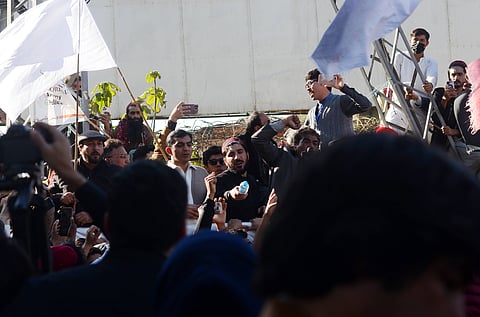Pashtuns will not be pawns in Pakistan’s dangerous game with the TTP and Taliban
On 30 January, at least 101 people, most of them police officers, were massacred by a suicide bomber in a mosque in Peshawar during Friday prayers. The area where the blast occurred is supposedly a highly fortified part of the city, as it houses government buildings, intelligence and counterterrorism bureaus and the residence of the chief minister of Khyber Pakhtunkhwa province. There has been public outrage in response. Local police demanded a full and transparent investigation, adding that they were compelled to take to the streets in protest given the deteriorating law-and-order situation in the province. While the provincial police – which includes many Pashtuns in its ranks – has been targeted in the past, this marked one of the first times that police officers joined protests.
The Peshawar mosque blast is only the most recent instance of a wave of attacks in Khyber Pakhtunkhwa and across Pakistan, highlighting the impact of increased militancy in the region. In 2022, the Tehreek-i-Taliban Pakistan carried out more than 260 attacks in the country – a 27-percent increase compared to the previous year – killing 419 people. This happened even as peace negotiations between the TTP and the Pakistan government were ongoing, with the Afghan Taliban acting as intermediaries.

